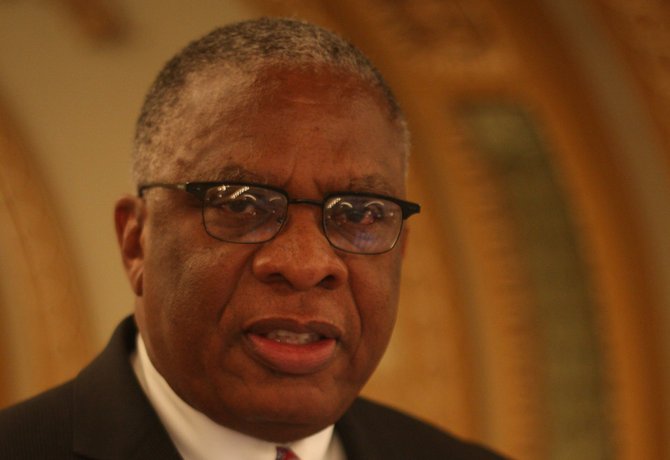Sometime after his election as the new mayor of Vicksburg, George Flaggs, a former state lawmaker, said someone made a joke about whether African Americans would get more set-asides.
"We don't need set asides. It's three of us—we got it all," Flaggs responded.
Flaggs' remarks came during a panel of three recently elected black mayors in Mississippi that included Jackson's Chokwe Lumumba and Canton Mayor Arnel Bolden.
Jackson State University's Institute of Government and the state Legislative Black Caucus sponsored newly elected black mayors' forum to highlight the historical significance of three of the largest cities in Mississippi's populous midsection having African American mayors, said Otha Burton Jr., the institute's executive director.
Mississippi holds the distinction of having the most black elected officials in the nation and, while Vicksburg and Jackson have had long had blacks in the top spot, Meridian elected its first African American mayor—Democrat Percy L. Bland—in June 2013.
State Sen. Kenneth Wayne Jones, D-Canton, chairman of the state's black caucus, admitted that state lawmakers could do more to assist black-led municipalities.
"Some of the problems communities are facing are similar, but they also have problems that are different that we can help with as a Legislature," Jones said.
Flaggs, who sometimes drew criticism from fellow Democrats and progressives during his legislative tenure, said his relationships with Republican Gov. Phil Bryant and Speaker Philip Gunn, R-Clinton, would bode well for his plans to solicit state support for his initiatives. Flaggs wants to incorporate more African American history into Vicksburg's Civil War tourism industry to draw more black families to the historic sites and called for raising the minimum wage of $7.25 per hour to $8 in Mississippi.
Lumumba, who defeated Jackson's first black mayor, Harvey Johnson Jr., earlier this year, said that despite the fact the Jackson is a "well-used" capital city, its requests often are left on the budget cutting-room floor.
Of the 14 lawmakers on the committee that recently held budget hearings, none is from Mississippi's most populous city. And, the state does not contribute directly to the city's coffers, despite the fact that legislators, their constituents and numerous state agencies make full use of the city's infrastructure and services. In the most recent legislative session, the city of Jackson received $3 million from a bond bill for repairs to the Woodrow Wilson Avenue bridge.
Lumumba added that state lawmakers have historically "retarded" Mississippi's black citizens, who comprise nearly 40 percent of the state's population. Jackson, the largest city in the state with roughly 173,000 people, is 80 percent black. That retardation has delayed Mississippi's growth, Lumumba said.
Employing people to do jobs the city has long had a practice of outsourcing to private companies, such as public works, would allow city government to help its citizens build wealth, Lumumba said.
"No recovery can succeed if a large percentage of the population is not participating in the economy," Lumumba told the audience.


